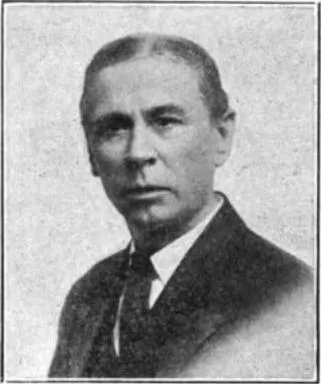The Large Catechism teaches that pastors are spiritual fathers and that should be enough to stop the silliness of interpreting Jesus as if He doesn't want Christians to ever call anyone "father." Perhaps my favorite response is to ask the complainer if he also refuses to call his dad "father."
If a Lutheran pastor is actually Romanizing or developing Easternizing tendencies, identify and deal with the substance of the problem.
I've been called a "bronzie" more than once, and I obviously love "old Missouri." But if you're out bronzing Franz Pieper in a translation by J. T. Mueller, you've got a problem.
Here's Franz Pieper on the subject:
Although the Pope blasphemes the Gospel of Christ, yet the papists call him Holy Father. Even non-Catholics employ this term. The true ministers of the Gospel, however, are despised by the world, and Christians frequently commit the same sin. They talk of the "poor preacher" and refuse to allow their sons to become pastors. But Luther declares that one who occupies the sacred office and proclaims God's Word faithfully should be called not only "reverend sir," but even "saintly sir" and "holy father," not indeed because of his person, but out of respect for his office, because he proclaims the Word of God. He even offered to address the Pope as "most holy sir" if he would only teach God's Word. (Cf. St. L. Ed., VII, 600.)Luther writes in particular: "All upright, pious souls should hold their pastors and ministers in high esteem for the sake of the Lord Christ and His Word and regard them highly as precious gifts and treasures bestowed on them by God and worth more than all earthly gifts and treasures." (St. L. Ed., VII, 600.)
This quotation is from "The Laymen's Movement in Light of God's Word" (Die von Gottgeordnete Laienbewegung), a paper Pieper gave at the 1913 Southern Illinois District Convention, which was translated by J. T. Mueller and included in the 1933 volume What is Christianity? And Other Essays.

The so-called "complaint over people using the title 'father' in reference to pastors " is based on the words of our Lord Jesus Christ, spoken in Matthew 23:8-10 to His disciples and to the people present, that refer to proscribed titles for His disciples, and specifically in v. 9 to the title of "Father": "And call no man your father on earth, for you have one Father, who is in heaven."
ReplyDeleteTherefore, while honor is due by congregations to those who have been placed in the office of pastor, or undershepherd, our Savior's own words and the relevant context in which they were given stand against using certain honorific titles for pastors or other church leaders. Even more so, Jesus' words stand against pastors giving themselves or other church leaders the title of "Father," "Holy Father," etc.
Also, quite frankly, it has become tiresome to see attempts to eisegete an understanding of v. 9 in a way that precludes calling one’s male parent "father" as well. In its context Mt. 23 is not dealing with children referring to their biological parents. The context is that of specific honorific titles used for and by religious leaders, which our Lord proscribes the application to or by his disciples.
As for honorific titles used for early church pastors and leaders, one can look at Acts 21:17,20; 1 Corinthians 16:12; Colossians 1:1; 1 Thessalonians 3:2; and 2 Peter 3:15.
Even though Paul said "my child, Onesimus, whose father I have become," it would be silly to stretch this into a claim of "Father" as the honorific title by which Paul wanted to be addressed by the Church (or even by Onesimus or Philemon), when in the same letter (vs. 16 and 20) Paul calls both of them "brother."
Again, if the plain literal meaning of Mt 23:8-10 in its context is not correct, then what interpretation is acceptable? On what basis would simply ignoring our Lord's words be acceptable exegesis?
The description of "father" appears in several places in the NT, but never with the explicit or implicit command to use "Father" as the title by which one is to address an apostle or pastor.
Furthermore any attempt to turn such verses in the Epistles into a command or permission (overiding our Lord's proscription) is as ridiculous as eisegeting 1 Thess. 2:7-8, so that St. Paul, speaking in the Holy Spirit, directs the Thessalonians to address him with the honorific title of "Mother Paul" or "Nurse Paul."